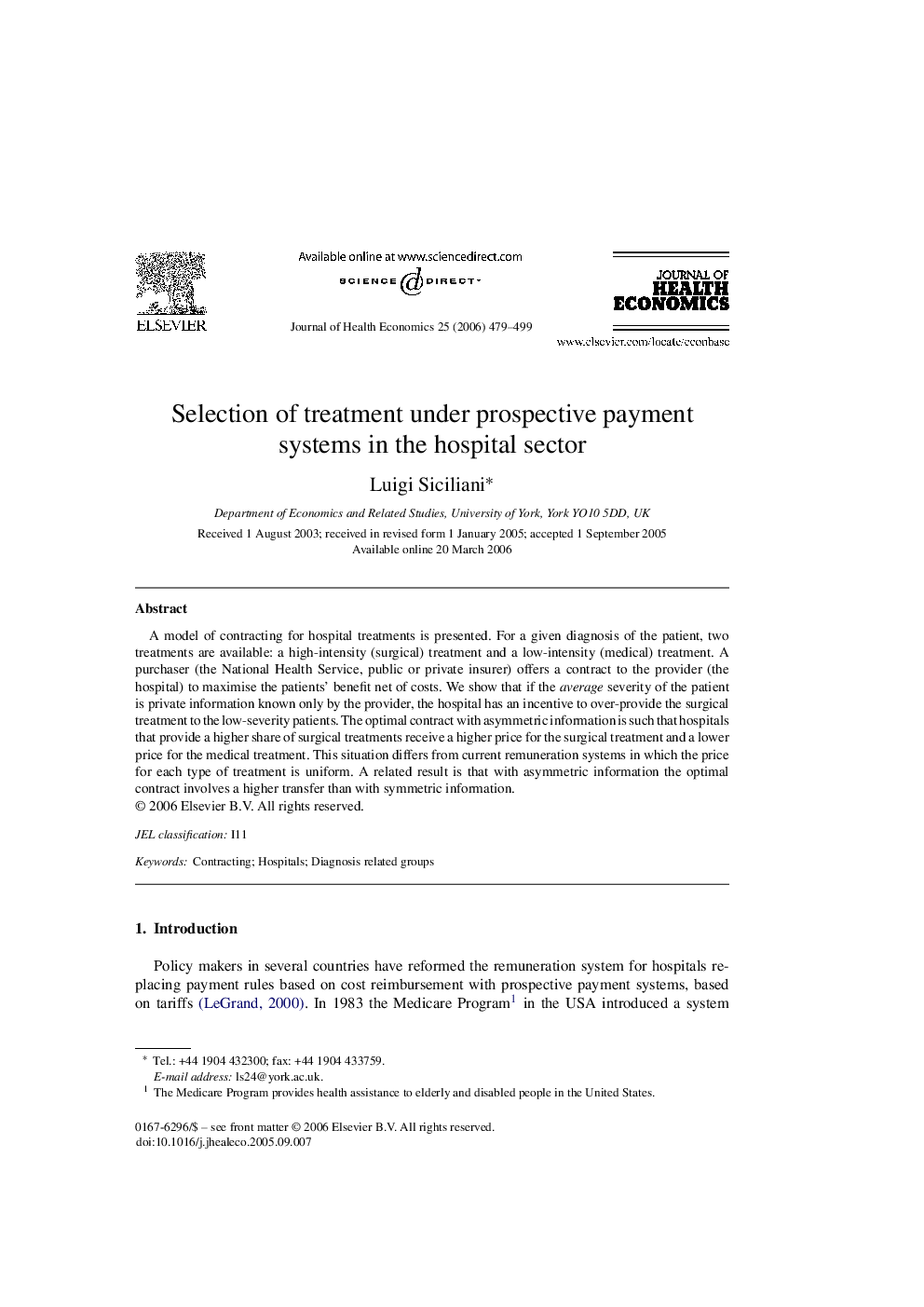| Article ID | Journal | Published Year | Pages | File Type |
|---|---|---|---|---|
| 961474 | Journal of Health Economics | 2006 | 21 Pages |
Abstract
A model of contracting for hospital treatments is presented. For a given diagnosis of the patient, two treatments are available: a high-intensity (surgical) treatment and a low-intensity (medical) treatment. A purchaser (the National Health Service, public or private insurer) offers a contract to the provider (the hospital) to maximise the patients' benefit net of costs. We show that if the average severity of the patient is private information known only by the provider, the hospital has an incentive to over-provide the surgical treatment to the low-severity patients. The optimal contract with asymmetric information is such that hospitals that provide a higher share of surgical treatments receive a higher price for the surgical treatment and a lower price for the medical treatment. This situation differs from current remuneration systems in which the price for each type of treatment is uniform. A related result is that with asymmetric information the optimal contract involves a higher transfer than with symmetric information.
Related Topics
Health Sciences
Medicine and Dentistry
Public Health and Health Policy
Authors
Luigi Siciliani,
